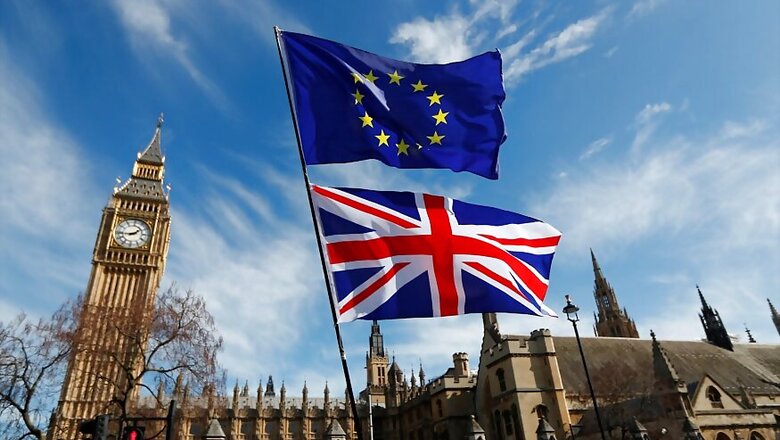
views
London: A year to the day after Britain voted to quit the European Union, the divorce proceedings are only just starting and European leaders are hoping that the decree absolute never comes through.
On June 23 last year, Britons voted by the narrow majority of 52-48 to end the unhappy cross-Channel marriage of four decades.
The referendum result toppled the government of David Cameron but now his successor, Theresa May, is also wobbling after a disastrous showing in an election two weeks ago.
May had called the election in the expectation of improving her party's grip on parliament and so strengthening her hand in the Brexit negotiations with the European Union.
But voters had other ideas, wiping out her Conservatives' majority and plunging the Brexit process into new doubt.
In truth, doubts were apparent as soon as the referendum result came through. Britons had voted to leave the EU, but in what way exactly?
Pollsters said the decision was motivated to a large degree by frustration at uncontrolled immigration from the rest of the EU among austerity-weary Britons and by a desire for greater national sovereignty.
May took that to mean a "hard Brexit" -- stopping free movement of people from the EU, at the cost of depriving Britain of membership of the bloc's common trading market.
In March she filed the annulment papers by invoking Article 50 of the EU treaty, which sets a two-year deadline for the break-up to take effect.
But the formal negotiations only began on Monday, so the timeframe is tight to clinch agreement on the dizzying range of issues confronting both sides.
Dream on
The resurgent Labour opposition and May's own finance minister, Philip Hammond, insist that Britons did not vote to become poorer, so divining the country's true intentions is fully exercising eurocrats in Brussels.
EU president Donald Tusk on Thursday channelled John Lennon when he noted that British friends were asking him if their country could end up staying part of the EU.
"I told them that in fact, the European Union was built on dreams that seemed impossible to achieve," he told reporters.
"So who knows? You may say that I'm a dreamer, but I'm not the only one."
Tusk's reverie followed comments in a similar vein by the new French president, Emmanuel Macron, and Germany's finance minister.
But a year on from the referendum, the debate in Britain is less about stopping Brexit entirely and more about what form it should take -- whether a clean break, or a "soft" option that retains membership of the common market.
Hammond called this week for years-long transitional arrangements to cushion the blow for British businesses once they lose unfettered access to their biggest export market.
"We are leaving the European Union but when you buy a house you don't necessarily move all your furniture in on the first day you buy it. This is a process," he said.
Breaking up is hard
Opinion polls show a majority in favour of respecting the referendum result -- including among those who voted a year ago to remain in the EU.
The Labour party, confounding the pollsters, came out strengthened by the recent election but it too supports pushing on with the process, albeit in a way that emphasises jobs and livings standards.
And then there is the constitutional quagmire thrown up by Brexit.
May this week indicated that Scotland's separate parliament would have to be consulted on the shape of the final deal, and Scotland -- unlike England and Wales -- voted a year ago to remain.
So much remains unclear as the estrangement takes formal shape in the coming months, including even whether May's government can last to see the process through.
Before the election, the rest of the EU at least had some certainty that Britain's proposed terms of divorce encompassed a "hard Brexit".
But the election threw up new alliances among voters that could confound the ardent Brexiteers' plans for a clean break.
"Profound and fundamental political changes have occurred since the referendum and it remains to be seen how durable they prove to be," professor Anand Menon, director of think-tank The UK in a Changing Europe, wrote in a new study.
"It is hard, if not impossible, following the snap election to know how the Brexit negotiations will go. The attitude our fundamentally divided -- between and within parties -- parliament will take is crucial and impossible to predict," he said.

















Comments
0 comment